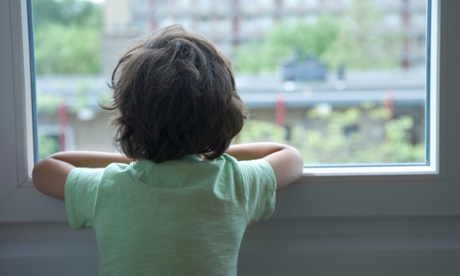In Wednesday’s Queen speech, the government set out its grand plan to save social work. The children and social work bill will include the creation of a new regulator for professionals, changes to training, the introduction of post-qualifying accreditation for children’s social workers, more support for care leavers and measures to speed up the adoption process. Many of these plans have been telegraphed in speeches and articles over the past six months, but this announcement makes it clear that David Cameron is looking to return to his roots as a social reformer. This child-focused bill fits neatly with changes to prisons and schools set out in other bills announced yesterday.
While the government gives out platitudes for social workers, call us “unsung heroes” and trots out feigned gratitude for doing “one of the hardest jobs in the world”, the undercurrent to these changes is clear: we aren’t capable of doing our jobs properly, our training was sub-standard, and we should be subjected to further testing regardless of our educational achievement and experience. It is another professional upheaval to add to the long list of reviews, reports, legislation and guidance that have come before it.
Other changes that have come since the 1989 Children Act, a piece of legislation that still provides the foundation for safeguarding practice, have tended to focus on specific areas of practice. In contrast, the children and social work bill appears to be a more fundamental shake up of the profession. Faster adoptions, post-qualifying accreditation, longer periods of support for care leavers, a new regulator that will seek to drive improvement, higher standards for corporate parents, a stated pledge to respect common sense and experience in practice; these are large-scale changes that will touch every aspect of child protection.
For all the talk of tackling “some of the deepest problems in society” and improving opportunities for young people, the bill leaves me decidedly underwhelmed. It shows a lack of ambition and promotes a linear form of social work seeking to have us all meet standards or proficiencies that are framed in a defined school of practice. In a profession that is beset by stress, burnout, high turnover of staff and reliance on short-term agency workers, I fail to see how “introducing more demanding professional standards” will work when there are no social workers left in the team.
But though I fear what these changes will do to our workforce and how we will cope with this burden of accreditation and higher standards, it is the children we work for that I worry about far more.
There is a focus on speeding up the adoption process when it is the right option for children, even at the expense of maintaining family ties, but no comment on what we can do to help parents get the support they need following this process. Those of us working in child protection know all too well the cycle of parents losing children, getting pregnant again, pre-birth assessments and the subsequent removal of further children. We might be able to speed up the adoption process, but there is little sign of stymying this sorry series of events in the first place.
This bill sets out no plans for early intervention and no grand ambition to address the societal issues that drive many aspects of abuse and neglect. There appears to be little acceptance from the government that, by the time children come to the attention of children’s services, the damage is often already done. Foetal alcohol syndrome, in utero exposure to drugs, and early childhood trauma significantly affect the life course of a child whether they are adopted or not. These new powers may mean we get better at responding to problems when they are identified, but don’t focus on preventing such issues in the first place.
I genuinely welcome Cameron’s focus on children’s social work and can see the merits of accreditation, a standalone regulator and the increased support for those in the care system, which is surely welcomed by all. But without the funds and ambition to address the societal issues that cause people to enter the social care system in the first place, such measures will be nothing but a plaster on the wounds of a society that is increasingly divided by wealth, opportunity, status and geography.
If Cameron really wants his legacy to be based on social reform not fiscal management, then he must look beyond regulation to give children a better shot at life. He must accept that cuts to council budgets, mass closure of children’s centres and the increasingly risk-averse procedural nature of social work practice – all factors that have happened on his watch – have had a significantly adverse impact on our profession.
To paraphrase Tony Blair, he is right to be tough on abusive parents, but he must be tough on the causes of this abuse as well.
Social Work Tutor is a child protection social worker and writes at socialworktutor.com
Join the Social Care Network to read more pieces like this. Follow us on Twitter (@GdnSocialCare) and like us on Facebook to keep up with the latest social care news and views.











